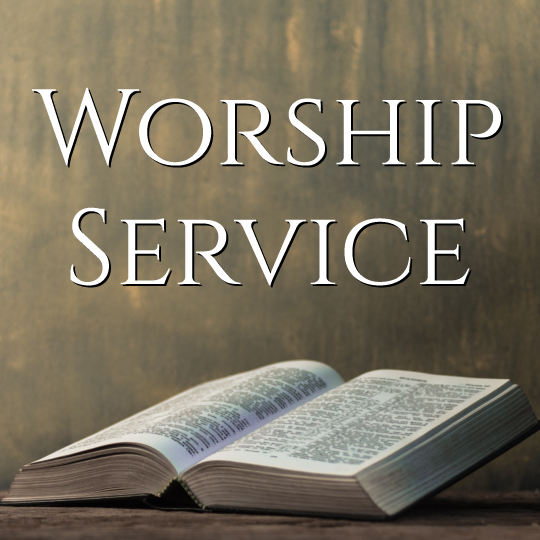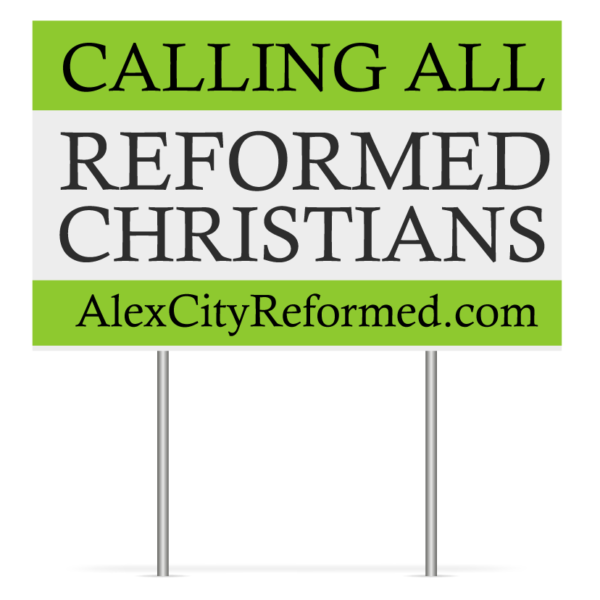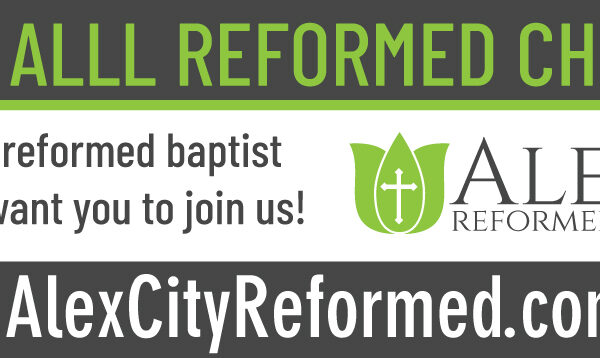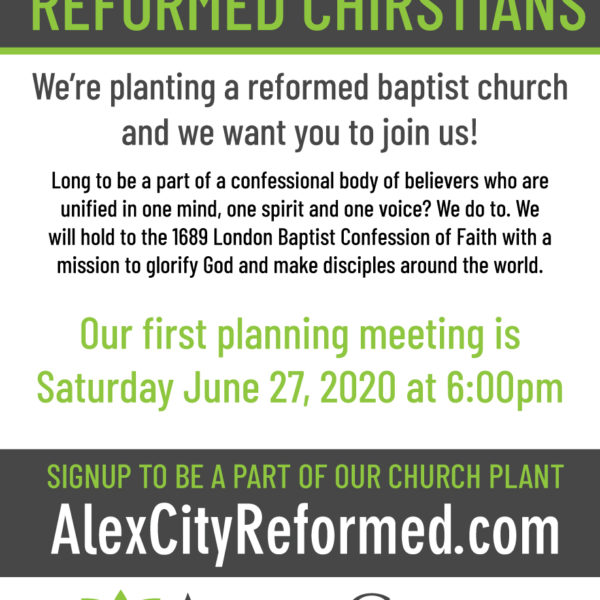Upcoming
Worship Service
Worship Service
Worship Service
WE'RE CONFESSIONAL
What is a confession and why is it important?
We’re called to “reach unity in the faith and in the knowledge of the Son of God and become mature, attaining to the whole measure of the fullness of Christ”. This is done through the understanding of doctrines we find in scripture. So many churches believe and teach a wide range of doctrines which causes strife within the body. Making the church doctrines clear and concise from the beginning will mitigate many of these issues.
What would Biblical or Systematic or Exegetical Theology be without the aid of Historical Theology? While not inspired Scripture, historic confessions help us to work through doctrine in connection with saints who have gone before us. For Baptists particularly, we have vacillated across a wide expanse of theological understanding since the days of the late 1600’s, even since the days of Spurgeon, and this expanse includes several movements that had no real historic connection prior to their sudden development. Historic Confessions serve as a guide rail against much post-enlightenment theological novelty that has swept Evangelical Protestantism.
1689 London Baptist Confession
Huddled together in 1644, representatives of 7 churches gathered to summarize their common confession, and to distinguish themselves from the Anabaptists and the Arminians. It was a time of turmoil, and the river of the Reformation had swept across the shores of England. This was one of the first of several non-Anglican groups in that century to put pen to paper and confess their faith. Two years later, the Westminster Assembly would produce its own confession (WCF), and then in 1658, the Congregationalists would follow suit (Savoy Declaration). That original group of 7 churches was the Particular Baptists. Amid threats of persecution, and to show their solidarity and theological agreement in many ways with the Presbyterians and Congregationalists that had since written their own confessions, a larger crop of Baptists would draft the 1677 Baptist Confession with great reliance on the WCF and Savoy, however, this confession would be put forth by a General Assembly of Particular Baptists ultimately in 1689, giving it the name that it is known by today: “The 1689 London Baptist Confession of Faith”, often called the Second London Baptist Confession of Faith. This Confession was classically theist in its view of God, covenantal in its view of Biblical Theology, “Calvinist” in its soteriology, and would show alignment with the Westminster Confession of Faith on the Ordinary Means of Grace and the Law.
Our Distinctives

Reformed Doctrine
The heart of reformed doctrine is that all things were made by God, for God and through God, and we are to exalt God in everything we say and do. We hold to the historic reformed confession, the Second London Baptist Confession of 1689.

Family Integration
We believe the Bible teaches that the whole church should worship and serve together. The older saints need the strength of the younger, the younger need the wisdom of the older, and the unbelievers need the example of both.

Local Community
We believe that the church should be a community within a broader community. The church community should be active in demonstrating love to one another, and reaching out to impact those around us.

World-Wide Outreach
We believe that the church is called to go and make disciples of all nations. We are committed to spreading the good news at home and abroad.
Essential Doctrines
We believe in one God, the Father Almighty, Maker of heaven and earth, and of all things visible and invisible.
And in one Lord Jesus Christ, the only-begotten Son of God, eternally begotten of the Father before all ages, Light of Light, very God of very God, begotten, not made, being of one substance with the Father; by whom all things were made; who for us men, and for our salvation, came down from heaven, and was incarnate by the Holy Ghost of the Virgin Mary, and was made man; he was crucified for us under Pontius Pilate, and suffered, and was buried, and the third day he rose again, according to the Scriptures, and ascended into heaven, and sitteth on the right hand of the Father; from thence he shall come again, with glory, to judge the quick and the dead; whose kingdom shall have no end.
And in the Holy Ghost, the Lord and Giver of life, who proceedeth from the Father, who with the Father and the Son together is worshiped and glorified, who spake by the prophets. In one holy church; we acknowledge one baptism; we look for the resurrection of the dead, and the life of the world to come. Amen.
We believe that the Holy Scripture, consisting of the 66 books of the Old and New Testaments, is the only sufficient, certain, infallible, and inerrant rule of all saving knowledge, faith, and obedience.
We believe that saving faith, which receives and rests on Christ and his righteousness, is the alone instrument of justification; yet it is not alone in the person justified, but is ever accompanied with all other saving graces, and is no dead faith, but works by love.
Help us get the word out!
Planting a church takes a community. We need your help to get the word out to the community about our mission to plant a reformed baptist church in Alexander City, Alabama! We can provide you with flyers, yard signs, t-shirts and anything else you need to promote our church plant. If you have any questions or need any assistance, please contact us.
Jephthah’s Foolish Vow
Alex City Reformed Baptist Church - Sunday Morning Worship ServiceMisinterpretations of spiritual gifts
How popular misinterpretations of spiritual gifts create fakery, spiritual hierarchies, and even wreck people's faithYou’re NOT enough!
You're NOT enough: why God wants your dependence, not your self-reliance.Glory of Christmas: The Lamb
Alex City Reformed Baptist Church - Sunday Morning Worship ServicePurpose of Christmas: Reconciliation
Alex City Reformed Baptist Church - Sunday Morning Worship ServicePromise of Christmas: The Son
Alex City Reformed Baptist Church - Sunday Morning Worship ServicePromise of Christmas: The Son
Alex City Reformed Baptist Church - Sunday Morning Worship ServicePromise of Christmas: The Son
Alex City Reformed Baptist Church - Sunday Morning Worship ServiceReason for Christmas: Original Sin
Alex City Reformed Baptist Church - Sunday Morning Worship ServiceThe Supremacy of God’s Word
Alex City Reformed Baptist Church - Sunday Morning Worship ServiceWhat’s More Important Than Devotion?
Alex City Reformed Baptist Church - Sunday Morning Worship ServiceThe God Who Acts for You Who Wait
Alex City Reformed Baptist Church - Sunday Morning Worship ServiceSunday Worship – James 1
Alex City Reformed Baptist Church - Sunday Morning Worship ServiceThe Glory of the Church
Alex City Reformed Baptist Church - Sunday Morning Worship ServiceThe True Meaning of Confession: Beyond Just Asking for Forgiveness
The True Meaning of Confession: Beyond Just Asking for ForgivenessDo you really seek to be freed from your sin?
Do you really seek to be freed from your sin?Is This Not the Fast I Choose?
Alex City Reformed Baptist Church - Sunday Morning Worship ServiceThe Work of the Church
Alex City Reformed Baptist Church - Sunday Morning Worship ServiceIt Was the Will of God to Crush Him
Alex City Reformed Baptist Church - Sunday Morning Worship ServiceGod seeking us
The transformative power of good news in faith
The transformative power of good news in faithCan a Woman Forget Her Nursing Child?
Alex City Reformed Baptist Church - Sunday Morning Worship ServiceWhy So Much About Idols?
Alex City Reformed Baptist Church - Sunday Morning Worship ServiceHoliness Among God’s People
We continue our verse by verse study in Ezra. MP3 Audio VersionKeep Doing the Right Things
We continue our verse by verse study in Ezra. MP3 Audio VersionThe Fleetingness of God’s Grace
We continue our verse by verse study in Ezra. MP3 Audio VersionLeaving the Sins of Our Fathers
We continue our verse by verse study in Ezra. MP3 Audio VersionAn Example of Leadership
We continue our verse by verse study in Ezra. MP3 Audio VersionLeaving the Sins of Our Fathers
We continue our verse by verse study in Ezra. MP3 Audio VersionMixed Marriages (Overview)
We continue our verse by verse study in Ezra. MP3 Audio VersionReturning to Captivity of the Law
We continue our verse by verse study in Ezra. MP3 Audio VersionWeighing In: A New Beginning
We continue our verse by verse study in Ezra. MP3 Audio VersionThe God Who Guards His People
We continue our verse by verse study in Ezra. MP3 Audio VersionThe God Who Distributes Gifts
We continue our verse by verse study in Ezra. MP3 Audio VersionThe God Who Listens to His People
We continue our verse by verse study in Ezra. MP3 Audio VersionWhat does it mean to be reformed?
To be Reformed is:
1) To confess the consensus of the five first centuries of the church:
- Classic theism: One omnipotent, benevolent God, distinct from creation.
- Nicene and Chalcedonian Trinitarianism: one God in three eternally existent persons, equal in power and glory.
- Christ, the God-Man, the one mediator between God & the human race, incarnate, crucified, resurrected, ascended, & coming again.
- Humanity created in the image of God, yet tragically fallen & profoundly in need of restoration to God through Christ.
- The Visible Church: the community of the redeemed, indwelt by the Holy Spirit; the mystical body of Christ on earth.
- The one, holy, catholic, and apostolic church.
- The Sacraments: visible signs and seals of the grace of God, ministering Christ’s love to us in our deep need.
- The Christian life: characterized by the prime theological virtues of faith, hope, and love.
2) To confess the five solas:
- The authority of Scripture: sola scriptura (Scripture alone)
- the basis of salvation: Sola Gratia (Grace alone)
- the means of salvation: Sola Fide (Faith alone)
- the merit of salvation: Solus Christus (Christ alone)
- the glory of salvation: Soli Deo Gloria (Glory to God alone)
3) To confess the distinctives of the Reformed faith:
- In salvation: monergism not synergism. God alone saves. Such monergism implies T.U.L.I.P., the Five Points of Calvinism from the Synod of Dordt:
T = Total Depravity
U = Unconditional Election
L = Limited Atonement, or, better, Particular Redemption
I = Irresistible Grace
P = Perseverence and Preservation of the Saints
So what does this all mean? To be Reformed is to adhere to the purist teachings of the Bible – to affirm the doctrine taught by Jesus, Paul and the apostles. Scripture is considered the ultimate authority in matters of life and faith and all Reformed doctrine is founded on the Bible. We are convinced that Reformed doctrine is nothing more than the teachings of Jesus, the Apostles and the totality of the Scriptures. Were it not for human sin we would have to make no distinction between biblical Christianity and the Reformed faith.










